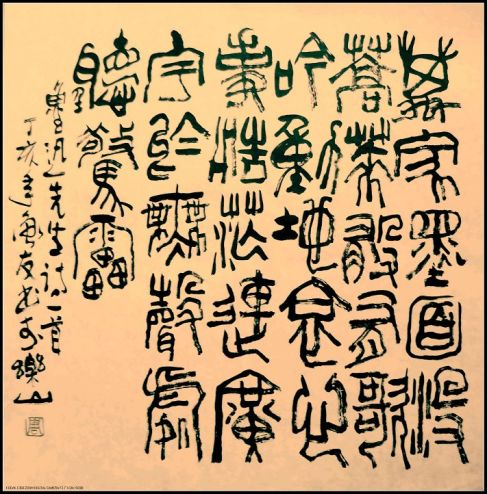(Argh! Just a little late.)
We’ve had poems from the heyday of Imperial China, and we’ve had poems from the crises of Imperial China. But today, I’d like to do an example of ancient poetry from right after the end of Imperial China, from one of the greatest Chinese writers of the 20th century.
Chinese was once a highly diglossic language. Diglossia refers to a situation where the written form of the language – which is pretty much all I’ve been translating so far, in the poems – is different, often dramatically, from the way the language actually is spoken.
Lu Xun (1881 – 1936), born Zhou Shuren, was one of the pioneering figures in forcing the two to come together, and in promoting the use of Vernacular rather than Classical Chinese as the written standard (which it is today). One of the first short stories written fully in the vernacular was his 1918 Diary of a Madman. He was also an ardent liberal and nationalist, which shows through most of his works, including the below.
We’ve been living in an interesting time of revolutions, to put it mildly – and this poem comes to mind every time I read about another uprising or round of protests. It was also what came to the mind of a lot of the protestors in a certain city square in June, 1989; the final line was a common refrain in the post-Tiananmen crackdown.
